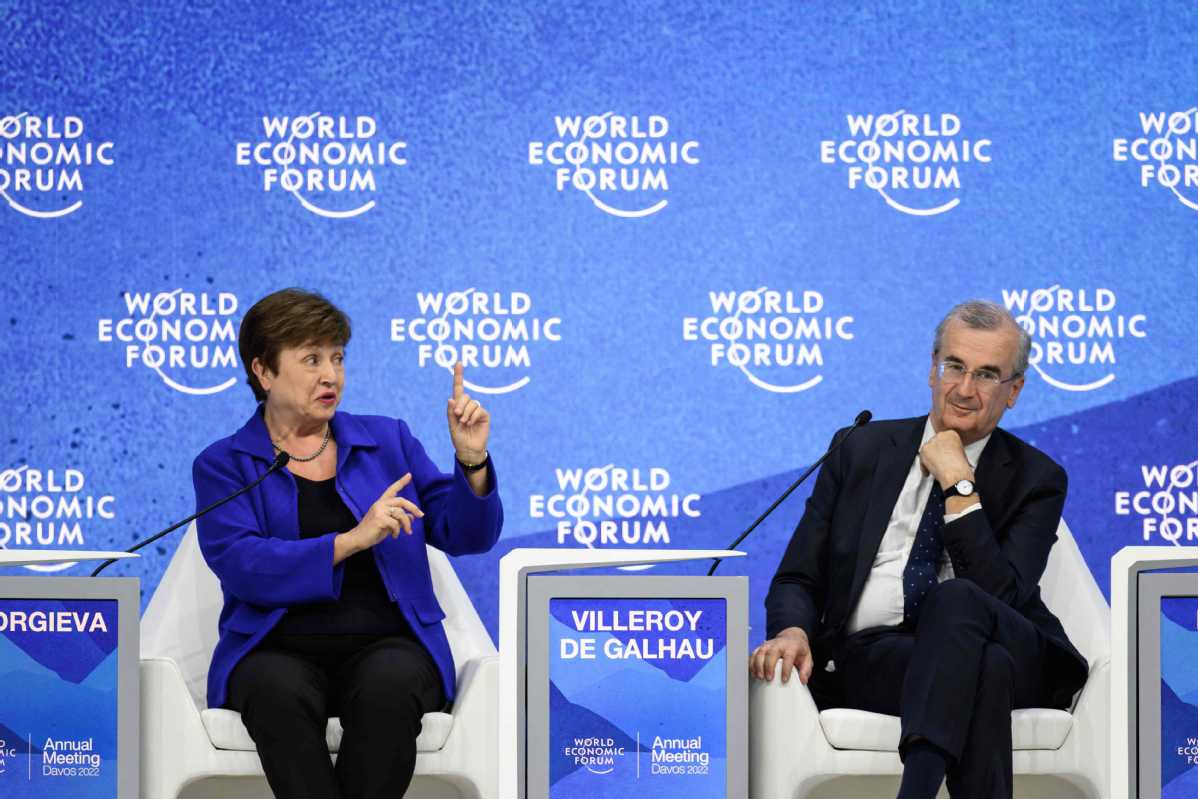Globalization's future put in Davos spotlight
By BO LEUNG in London | China Daily Global | Updated: 2022-05-25 10:05

Pause possible, but evolution to continue, which benefits consumers, participants say
Business leaders and experts spoke about the future of globalization at the World Economic Forum in Davos, Switzerland, on Monday, as the global economy continued to be disrupted by the COVID-19 pandemic, rising oil prices and the Russia-Ukraine conflict.
At the Future of Globalization session, Tarek Sultan, chief executive officer and vice-chairman of supply chain company Agility, said there is a "severe constraint at the level of the supply chain, and part of that is the result of how globalized the supply chain and the economy has become".
"We see the pressures of globalization continuing and accelerating," Sultan said.
However, changing demographics and evolving technology are "positive forces" driving globalization, and these factors are more important than geopolitical influences, he said.
Loic Tassel, president of Procter& Gamble Europe, said that without globalization, billions of consumers would not have access to high-quality, reliable, trustworthy and innovative products.
However, taking the current global situation into account, there might be a temporary pause of globalization, said Tassel, who added that it is the responsibility of leaders to continue to promote globalization, as it is a core interest of consumers.
Pamela Coke-Hamilton, executive director of the International Trade Centre, said that globalization is simply transforming, shifting and evolving, and she dismissed concerns about de-globalization.
"The facts don't support this and statistics show that, if you look at the measurement of what constitutes globalization, which is percentage of trade as a percentage of global GDP, in 2008 it was 51.2 percent, and in 2021 it was 42.5 percent, a minimal drop"-and largely unchanged from the 2016 level, Coke-Hamilton said.
She added that globalization "has actually lifted 1 billion people out of poverty".
Tassel, the P&G Europe president, said that as disruptions to global supply chains continue, multinational companies might have to look to localizing and diversifying supply chains.
"Globalization has worked well. What we are only talking about here is some regionalization of the supply chain, essentially out of newly identified constraints, which is a lack of reliability of global transport," Tassel said.
He added that having consumption closer to production means less of a carbon footprint.
Citing the flow of capital from the Hong Kong Special Administrative Region to the Chinese mainland, Nicolas Aguzin, CEO of Hong Kong Exchanges and Clearing Ltd, said that links between Hong Kong and the mainland have been increasing.
The average daily traded volume in Hong Kong was about HK$87 billion ($11.1 billion) in 2019, while in 2020 it grew to HK$129 billion, Aguzin said. In 2021, the figure increased to HK$167 billion.
"You can see over this period, everyone is focusing on decoupling, trade wars, trying to limit the interaction ... (but) what we were actually seeing is tremendous increase in flow," he said.
























